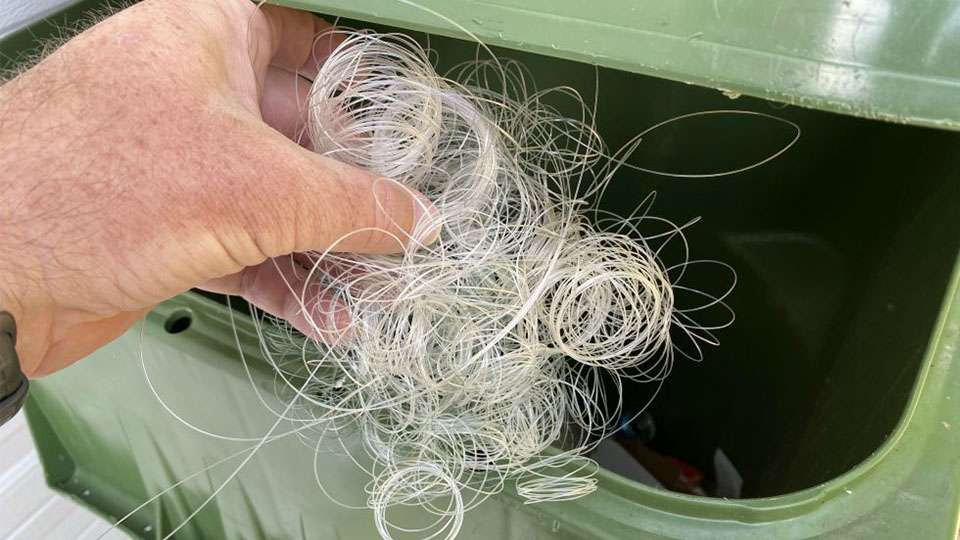
With fishing line taking more than 600 years to break down in the environment, it is vital that we increase the uptake of recycling of used line and commit to disposing of it correctly.
And for all those years the line poses a threat to birds, seals, turtles and and other marine life creating serious problems for these species and our marine and freshwater environments. Even in a landfill, discarded line can cause problems to animals.
To help reduce these problems we put together this comprehensive list below of recycling and disposal schemes for fishing line to help anglers discover ways to handle old line in an environmentally sound way.
Fortunately recycling programs and bins at piers and boat ramps are becoming more common, and most of the schemes outlined below contain resources on how to buy or build a line recycling bin and where to send the line you gather in the bin.
Recycled monofilament and fluorocarbon line can be repurposed into plastics that can even be used in the construction of new fishing gear.
It is important, though, for anglers to take responsibility for disposing of their own line properly. Obviously recycling the line is best, but in the event you are not near a recycling bin you need to cut it into small pieces before putting it into the bin.
The best way to do that is to wind it into coils and then use scissors or a knife to cut the coils to ensure it is in sections of no more than 4 inches or so. Cut it into smaller sections if you have time. This significantly reduces the risk of entanglement for birds and other animals frequently in landfill sites.
If you are out on the water or on the riverbank and don’t have access to scissors or a knife and aren’t near a recycling bin, bring your line home, cut it up as described and then dispose of it. Don’t just throw it in the bin.
| LOCATION | SCHEME | LINK | DETAILS |
|---|---|---|---|
| United States (all states) | Reel in and Recycle (Boat US foundation) | https://www.boatus.org/monofilament/ | Free equipment and resources to build your own recycling bins |
| United States (Florida) | Monofilament Recovery and Recycling Program (Florida Fish and Wildlife Conservation Commission) | https://mrrp.myfwc.com/about-the-program/ | Network of bins and shops and partnerships |
| United States | Berkley Fishing Line Recycling | https://www.berkley-fishing.com/pages/berkley-recycling | Leading line manufacturer’s recycling initiative focused on processing line deposited in bins |
| United States | Tangle Free Waters | https://tanglefreewaters.com/ | Independent network of recycling bins |
| United States | Monofilament Recycling Project (Fly Fishers International) | https://flyfishersinternational.org/Conservation/Projects-Programs/Monofilament-Recycling-Project | Project to allow locals to create and install line recycling bins |
| United States | Stow it, don’t throw it | http://stowitdontthrowitproject.weebly.com/the-project.html | Youth-led network of line recycling bins |
| United Kingdom | Anglers National Line Recycling Scheme | https://www.anglers-nlrs.co.uk/ | National network of bins and shops and partnerships with recyclers |
| Canada | Clear Your Gear | https://clearyourgear.ca/ | National line recycling and education scheme |
| Australia | Tangler Bins (Oceanwatch Australia) | https://www.oceanwatch.org.au/community/tangler-bin-faqs/ | Line disposal (not recycling) scheme with a network of bins |
| Australia | Seal the Loop (Zoos Victoria) |
https://www.zoo.org.au/seal-the-loop/ | Network of 260 bins in Victoria |




